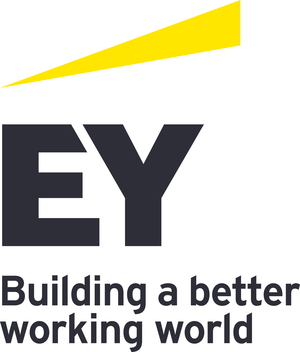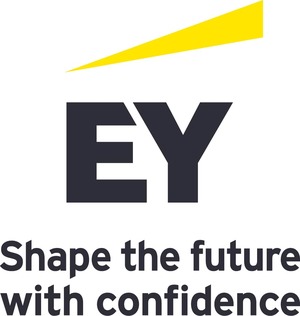EY Global FinTech Adoption Index finds over half (64%) of global consumers use FinTech
- US consumer adoption has grown 29.5% in the last four years
- 96% of global consumers are aware of at least one money transfer and payment FinTech service
- One-quarter of small and medium-sized enterprises use FinTech, with a 23% adoption rate in the US
NEW YORK, June 3, 2019 /PRNewswire/ -- Financial technology (FinTech) adoption among consumers has nearly doubled over the past 18 months, according to the latest EY Global FinTech Adoption Index, and the adoption rate is growing faster than anticipated. Globally, 64% of digitally-active consumers across 27 markets use FinTech, and awareness is even higher.
This year, the EY organization added the first-ever Small and Medium-Sized Enterprise (SME) FinTech Adoption Index given FinTech's expansion beyond consumers. EY member firms surveyed more than 1,000 organizations in five countries and found that one-quarter of organizations have used at least one FinTech across the following four categories in the past six months: banking and payments, financial management, financing and insurance.
"FinTech organizations are no longer fringe disruptors and have grown into sophisticated competitors," said Matt Hatch, Partner, Ernst & Young LLP and the EY Americas FinTech Leader. "Now, financial incumbents are taking note and offering FinTech solutions, forming ecosystems that are replacing traditional partnerships. We fully expect this trend to accelerate as nonfinancial companies enter the space and leverage technology and innovation to provide frictionless, transparent and highly-personalized services."
What's driving adoption?
EY firms interviewed more than 27,000 people to better understand how consumers are interacting with FinTech, and the results are promising. Based on the survey results, money transfer and payments services continue to be the most popular in both awareness and adoption, as only 4% of global consumers are unaware of at least one money transfer and payment FinTech service. Adoption rates continue to lag in the US, while Europe's investments in open banking have contributed to higher adoption rates in that region.
SMEs are further behind in their adoption journey compared to consumers. When an SME uses FinTech services, they have essentially selected this company as an approved vendor, so 25% is considered high, and the adoption rate is expected to climb. Over one-fifth (22%) of non-adopters already use FinTech services in three of the four categories defined in the survey methodology, which means they are on the verge of becoming FinTech adopters. By this measure, the global adoption rate could surge from 25% to 64%.
The impact of trust on FinTech adoption
The survey indicates that trust plays a large role in FinTech adoption, as non-adopters choose to remain with traditional financial services because they trust them more than FinTech challengers. Many FinTech propositions rely on data sharing, which can present a barrier for adoption. Nearly half (46%) of adopters are comfortable with their primary banking institution sharing their financial data with other organizations if it means better offers on products or services, but less than a quarter (23%) would share data with nonfinancial services companies. This trust gap creates a huge opportunity for financial institutions and FinTech challengers, as 31% of adopters say they are willing to share data with FinTech challengers. Although nonfinancial services companies might lead innovation, they don't have full confidence when it comes to providing financial services. Still, 68% of surveyed consumers are willing to consider a financial services product offered by a nonfinancial services company.
The SME FinTech Adoption Index found similar trends. SME FinTech adopters are also more open to sharing data with FinTech companies (89%) and other financial services companies (70%) over nonfinancial services companies (63%).
The future landscape
Looking ahead for both consumers and SMEs, newly developed ecosystems will encourage industry convergence as FinTech challengers continue to develop and mature, incumbent companies offer new innovative solutions and nonfinancial services companies expand their offerings.
Hatch added, "We're optimistic about collaboration between FinTech and traditional financial services companies in the future. Just under half (47%) of consumers are happy to use financial services from a nonfinancial services company if that company is working in partnership with the traditional financial services company. Similarly, SMEs are interested in joining FinTech ecosystems that integrate different propositions offered by challengers, incumbents and, in some cases, nonfinancial services companies. These ecosystems will continue to make financial services accessible for both consumers and businesses while enhancing the overall experience."
About the research
The study is based on over 27,000 online interviews with digitally active adults between February 4, 2019 and March 11, 2019 across 27 markets – Argentina, Australia, Belgium and Luxembourg (treated as one market), Brazil, Canada, Chile, China (mainland), Colombia, France, Germany, Hong Kong, India, Ireland, Italy, Japan, Mexico, the Netherlands, Peru, Russia, Singapore, South Africa, South Korea, Spain, Sweden, Switzerland, the UK and the US.
A regular FinTech user is defined as an individual who has used two or more FinTech services in the last six months.
The 2019 survey places FinTechs into five categories: money transfer and payments, budgeting and financial planning, savings and investments, borrowing and insurance. There are now 19 individual services, but the survey used the same 10 "buckets" as 2017 to enable year-over-year comparison.
The SME survey is based on 1,000 online interviews with senior decision-makers of SME organizations between January 15, 2019 and January 30, 2019. Senior decision-makers were defined as owners, managing directors, CEOs and other C-level executives responsible for business strategy, operations or financial decisions. An SME FinTech adopter was determined to have used services provided by a FinTech in all four of the following categories in the past six months: banking and payments, financial management, financing and insurance.
About EY
EY is a global leader in assurance, tax, transaction and advisory services. The insights and quality services we deliver help build trust and confidence in the capital markets and in economies the world over. We develop outstanding leaders who team to deliver on our promises to all of our stakeholders. In so doing, we play a critical role in building a better working world for our people, for our clients and for our communities.
EY refers to the global organization, and may refer to one or more of the member firms of Ernst & Young Global Limited, each of which is a separate legal entity. Ernst & Young Global Limited, a UK company limited by guarantee, does not provide services to clients. Information about how EY collects and uses personal data and a description of the rights individuals have under data protection legislation is available via ey.com/privacy. For more information about our organization, please visit ey.com.
This news release has been issued by Ernst & Young LLP, a member of the global EY organization that provides services to clients in the US.
SOURCE EY

Related Links
WANT YOUR COMPANY'S NEWS FEATURED ON PRNEWSWIRE.COM?
Newsrooms &
Influencers
Digital Media
Outlets
Journalists
Opted In





Share this article